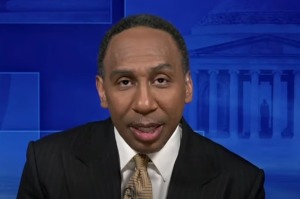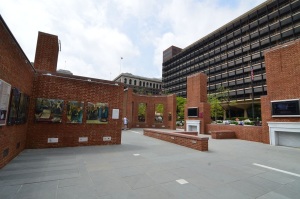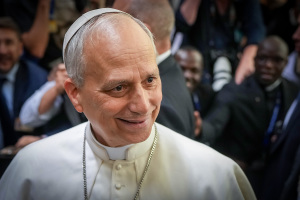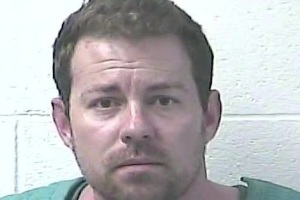Ask Dr. Land: Should churches obey gov't on no church services during coronavirus?
Question: Should churches comply with government mandates to not hold worship services during the coronavirus pandemic?
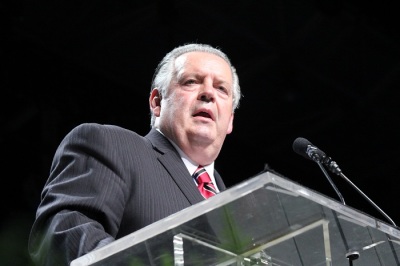
In the last few weeks, social media and the internet in general have been replete with debates about whether or not churches should comply with government mandates to suspend worship services and related church group activities as the country seeks to stem the spread of the incredibly contagious coronavirus.
Many have said, “Yes, we have an obligation to obey the civil magistrate for conscience sake” (Rom 13:7). Others have responded, “No, we have special freedoms and protections under the First Amendment, and our ultimate loyalty must be to Jesus, not the state!”
Are Christians being good citizens by complying with the government’s attempts to protect the public welfare of the citizenry, or do we exercise our freedom of conscience and trust that God will protect us from the potential health consequences? Which option is a more winsome and appealing Gospel witness to a watching world?
Such discussions and debates concerning the interplay and interaction between Christians and civil government have been ongoing since the early days of the Christian church. After all, the Apostle Paul addressed this very issue in his letter to the church in Rome as early as approximately AD 58. Almost certainly addressing a question perplexing the Christ-followers in the capital of the Roman Empire, Paul informed them that the civil magistrate was “ordained of God” and that their divinely mandated purpose (Paul even calls them “God’s ministers”) was to punish those who “doeth evil” and to reward those who “do that which is good” (Rom. 13:1-7). The Apostle exhorts his Roman Christian brothers and sisters to obey the civil authorities “for conscience sake,” concluding, “Render therefore to all their due: tribute to whom tribute is due; custom to whom custom; fear to whom fear; honour to whom honour” (Rom13:7).
At the same time, Jesus teaches that our ultimate loyalty must be to God, not Caesar (Mark 12:17). In the book of Acts, the Apostles Peter and John illustrate the limits of divinely mandated civil authority when they were commanded to be silent and cease witnessing to Jesus crucified and resurrected for the sins of the world. When threatened in order to “cease and desist for preaching the gospel, the apostle replied, “For we cannot but speak the things which we have seen and heard” (Acts 4:20) and said, “We ought to obey God rather than men” (Acts 5:29).
Herein lies the biblical roots of Christian civil disobedience from Anabaptists, Roger Williams, Dietrich Bonheoffer, and Martin Luther King Jr. In living with the tension between fealty to the government and fealty to Christ, Christians are living out the inevitable reality of St. Augustine’s “City of God “and the “City of Man,” and the “now, but not yet” reality of the fact that God has established his Church, “the colony of heaven” (Phil. 3:20) with His “peculiar people,” the church (1 Peter 2:9). While the church is the vanguard of His Kingdom here on earth, that Kingdom is “not yet” and will not be fully realized until the Second Coming of the Lord Jesus.
So, how is the now Holy Spirit inspired Christian church supposed to interact with the government concerning public policies and ultimate loyalties? A helpful summary of this issue for discussion purposes is provided by my own Baptist faith tradition, which historically has wrestled mightily with this question ever since emerging in the 16th century Reformation, first in Switzerland (the Anabaptists) and then in England (John Smyth, Thomas Helwys, Thomas Collier), and early New England (Roger Williams, Obadiah Holmes, John Leland).
In fact, Baptists were influential in the creation of the First Amendment without the promise of which they were not going to vote for ratification of the proposed U.S. Constitution (June 21, 1788). James Madison promised the Baptists that if they voted for the Constitution’s ratification (and their sizable vote might well have been determinative), he would introduce an amendment guaranteeing that “Congress shall make no law respecting the establishment of religion, or prohibiting the free exercise thereof.” Madison kept his word, and that amendment became the “First Amendment” in 1791.
This is the historical context in which this present debate is taking place. We have a free church and a free state.
The Baptist Faith & Message confession (on which I served as a member of the committee that produced the last major revision in 2000) states quite clearly, emphatically, and succinctly the beliefs behind the debate about obeying the civil magistrate regarding matters of the soul:
God alone is Lord of the conscience, and He has left it free from the doctrines and commandments of men which are contrary to His Word or not contained in it. Church and state should be separate. The state owes to every church protection and full freedom in the pursuit of its spiritual ends. . . . Civil government being ordained of God, it is the duty of Christians to render loyal obedience thereto in all things not contrary to the revealed will of God. . . . The state has no right to impose penalties for religious opinions of any mind. . . . A free church in a free state is the Christian ideal, and this implies the right of free and unhindered access to God on the part of all men, and the right to form and propagate opinions in the sphere of religion without interference by the civil power.
Given the long history of persecution and harassment by various civil authorities, Baptists and others in the “free church” tradition (as opposed to historically state supported churches such as Roman Catholicism, Eastern Orthodoxy, and Anglicanism) cherish their “soul freedom” to follow their consciences, not government mandates.
The question is, does that paradigm apply in this particular instance? I think not. The state is not singling out churches and telling them and them alone to cease assembling for worship. They are banning all gatherings.
Second, the reason for banning assemblies is not ideological or theological, but is simply seeking to protect all citizens from serious physical harm. No freedom in human society is “absolute.” In spite of freedom of speech, it is against the law to yell “fire” in a crowded theater unless there is indeed a fire. Why? It is to protect innocent people from being trampled in a panic.
Our legal system already recognizes the government’s right to interfere with religious belief when the courts determine that there is a “compelling state interest” which then takes precedent. For example, if parents belong to a religious group that does not believe in blood transfusions, and they thus deny their underage child such a blood transfusion to save the child’s life, the state may assume custody of the child and order the transfusion against the objections of parents. The parents’ religious rights are trumped by the state’s responsibility to protect the child from grievous harm. The parents can still refuse treatment for themselves on religious grounds, but the law deems the child is not mature enough to understand all the consequences of his actions, so the state intervenes out of a compelling interest in the child’s well-being.
In the particular instance of worship services during a pandemic, the state has a compelling interest in protecting the public safety and the churches should willingly comply with such government actions.
What the church should be doing is exploring innovative ways to “do church” online with Zoom and other methodologies. They should also be looking at innovative ways to use other technologies to connect the church and perhaps reach people they might not reach within the four walls of a church building. After all, the church is not the building where it gathers to worship, but the people themselves who gather there having covenanted to be the church in that particular location.
Just this last weekend, a church in Harrisburg, Ark. used a drive-in theater owned by a church member’s family for Sunday worship. The attendance at the drive-in service was higher than usual with many nonmembers attending. There were six salvation decisions and dozens of renewed spiritual commitments by attendees, and the church even “tripled its Sunday morning offering.” The church’s pastor, Jason Goad, said, “I’m just embracing this. . . . It is like ‘God, you knew this was going to happen. Maybe you’re shaking the church up to get us out of our comfort zones and out of our complacency, and this will awaken us.’”
Let’s not seek a needless confrontation with governmental authorities in order to demand the exercise of our “rights.” Instead, let’s heed our obligations and responsibilities to our neighbors as good citizens and not endanger their health and well-being.
And let’s do look for the Lord to use this crisis to give us opportunity to expand our Gospel witness in new and innovative ways.
In closing, let’s all listen and be challenged by the words of Lloyd Ogilvie, former pastor, Senate chaplain, writer, and editor:
The Lord presses us beyond our . . . skill into challenges and opportunities which could not be accomplished without his gifts, wisdom, and enabling power. . . . Each stretching possibility bring us back to the Lord for fresh anointing to break ground in the unexplored territory others are unwilling or afraid to pioneer. . . We had been called to grasp potential, not just solve problems. (Lloyd John Ogilvie, When God First Thought of You [1978], 65, 67, 68.
Dr. Richard Land, BA (magna cum laude), Princeton; D.Phil. Oxford; and Th.M., New Orleans Baptist Theological Seminary, was president of the Southern Baptists’ Ethics & Religious Liberty Commission (1988-2013) and has served since 2013 as president of Southern Evangelical Seminary in Charlotte, NC. Dr. Land has been teaching, writing, and speaking on moral and ethical issues for the last half century in addition to pastoring several churches.















